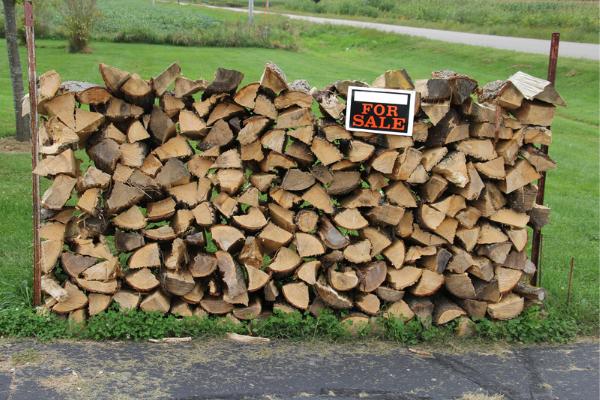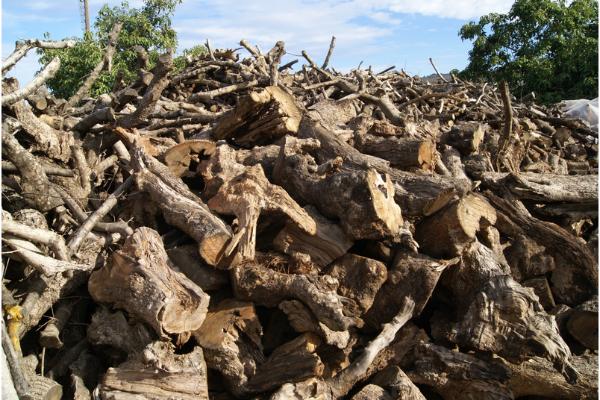You may be asking yourself, “Why is firewood so expensive?” Isn’t it just wood? Doesn’t it require little to no effort to make? Well, no. It doesn’t materialize out of thin air. A lot of painstaking labor goes into extracting regular pieces of firewood from entire trees.
Creating firewood is so involved that prices can change according to season, size and location. In this blog, we’ll show you how price is determined for kiln-dried firewood.
If you’d like to learn more about the firewood at Lumberjacks specifically, you can do so by clicking the button below.
Why is Firewood So Expensive?
From the forest to the lumber yard, producing effective firewood involves a lot of hard labor. In addition to this labor, state regulations and other factors can influence the price of firewood throughout the year. Here are some major players that exhibit the most profound effects on the best firewood prices near you.
Supply and Demand
In autumn, prices inevitably rise as more and more people remember to purchase firewood before winter arrives. Very few vendors forget to take advantage of this annual explosion in demand. To buy high-quality firewood at a lower-than-usual price, consider stocking up early in the year instead.
Buy firewood in early spring to earn the biggest bang for your buck. You will save money on what you’d otherwise purchase in the fall, and your firewood will have extra time to season. Further seasoning won’t make a difference if you buy kiln-dried firewood that’s already dry enough. But it can make a difference for seasoned firewood.
If you store your firewood in a place with plenty of shelter, sun and airflow, you can continue the seasoning process yourself.
Location
The immediate geography of where you live can also influence prices. If you live in a wooded area, firewood will be cheaper. If you live in an arid region, vendors have exerted much effort to ensure their firewood is available near you.
Buying as locally as possible is another way to reduce costs. All dependable firewood vendors shouldn’t be more than a couple of hours away from you.
Unconventional Sizes
We encourage you to buy firewood by the cord or fractions of a cord, as these denominations are not likely targets of price gouging. Piles, ricks, ranks and other sizes are much more likely to vary erratically in price.

Additional Labor Costs
Labor costs can affect the price of any firewood. However, additional labor costs may raise the price of certain types of wood – and those small extra costs are often well worth it. For example, the additional work necessary to create kiln-dried firewood requires more manhours and special equipment. The cost may be more than seasoned firewood, but the results are exceptional.
What’s the Price of a Cord?
Split, seasoned firewood (including labor, delivery and so on) can cost anywhere from $120 to $180 per cord, including 128 cubic feet of wood. So, we’re talking about a substantial quantity that lasts several months. Kiln-dried firewood will typically be more expensive due to its higher quality and more significant production costs.
Some prices can be as high as $200 or $300 for seasoned cords alone, and ordering firewood delivery to the most urban areas can cost $400.
Though firewood prices can be fickle, use the local average price for a cord of wood as a starting point when evaluating potential vendors. A deal will be much easier to spot once you know how high the cost of firewood should be in your general area. But you should also consider the wood production process and the quality of the wood.
What’s Wrong with Cheap Firewood?
Sometimes, firewood is so cheap because it’s no better than what’s in your backyard. Vendors might try to sell you fresh wood, which doesn’t burn, or softwood, which struggles to burn and produces tons of smoke.
Cheap firewood may also house pests that infiltrate your home. Your stack of firewood will sit there for a while, giving insects plenty of time to invade.
After a big storm, municipal crews may be looking to get rid of wooden debris as firewood. Construction companies and sawmills may also be looking to offload wooden debris that is unsuitable for sawing.
But don’t use anything that’s not raw wood, like a pallet. Not only can pallets house plenty of nails, but they’re often treated with chemicals that’ll spread through the air upon burning.

Why Is Kiln-Dried Hardwood Worth a Higher Cost?
There are two significant reasons kiln-dried firewood is more cost-effective than any other type of firewood: dryness and density.
As you may have gathered, seasoning is among the most common processes to make firewood dry enough to burn, but it leaves a lot of moisture behind. If it doesn’t keep fires from starting entirely, the remaining moisture can produce excess smoke and creosote, neither of which is good for us to inhale.
Heat-treating firewood at hundreds of degrees for two days is much more thorough, lowering moisture levels to below 20%. On the other hand, seasoning brings moisture content down to 30%. Kiln-dried firewood is easier to start and burns for more time. You won’t have to worry about any “duds.”
But kiln-drying is only part of the puzzle. Remember how we told you that shady vendors might try to sell you softwood? Make sure you’re buying hardwood.
Like moist wood, softwood produces tons of smoke and doesn’t burn well. Hardwood includes oak and hickory, while softwood includes species like pine or cedar. Hardwood burns better because it is infinitely denser, providing more heat and allowing for much longer fires.
Combining the impeccable dryness of kiln-drying with the high density of hardwood species creates truly exceptional firewood that’s worth the money you’re spending.
A Good Price for Firewood in Woodstock, IL
Now you know the answer to your burning question, “Why is firewood so expensive?” Whether you’re preparing for a single event or the entire winter, we recommend investing in effective firewood, even if the price is slightly higher. After all, anything less than kiln-dried hardwood doesn’t guarantee the same long burn times, so it may cost you more in the long term.
Lumberjacks has been proud to deliver kiln-dried hardwood across Chicagoland since the ‘90s. We stack our firewood deliveries in the truck as tightly as possible to ensure customers get everything they pay for. To enjoy a good price for firewood, please call us so we can start your order.
Editors Note: This blog was originally published in May of 2023 and was updated in February of 2024.








